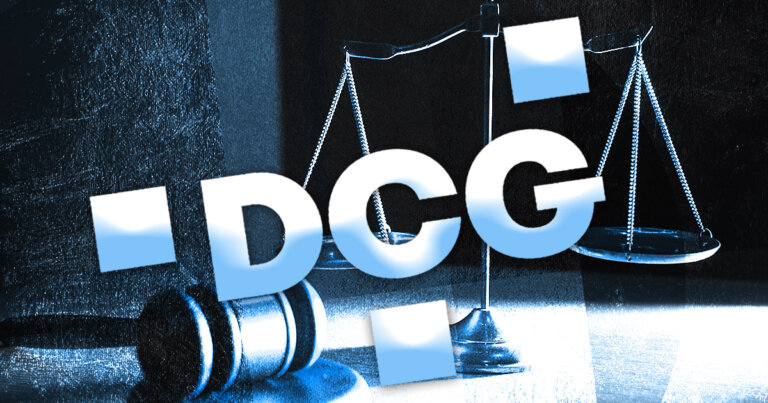New York Attorney General Challenges DCG and Barry Silbert’s Motion to Dismiss Fraud Allegations

QuickTake
- New York Attorney General Letitia James is pressing forward with her fraud lawsuit against Digital Currency Group (DCG), its CEO Barry Silbert, and former Genesis CEO Soichiro “Michael” Moro.
- The lawsuit accuses DCG, Genesis, and Gemini of conspiring to hide a $1 billion shortfall in Genesis’ finances caused by the collapse of Three Arrows Capital (3AC).
- James’ office has filed a motion opposing the dismissal requests from DCG, Silbert, and Moro.
New York Attorney General Letitia James remains steadfast in her legal battle against Digital Currency Group (DCG), its CEO Barry Silbert, and former Genesis CEO Soichiro “Michael” Moro. Despite attempts by the defendants to dismiss the case, James continues to pursue allegations of fraudulent activity involving DCG and its affiliates.
The crux of the lawsuit involves accusations that DCG, Genesis, and the crypto exchange Gemini colluded to obscure a massive $1 billion deficit in Genesis’ balance sheet, a situation precipitated by the dramatic collapse of the Singapore-based crypto hedge fund Three Arrows Capital (3AC). At the time of its implosion, 3AC was the second-largest borrower from Genesis, making its failure particularly impactful.
The Alleged Cover-Up
The lawsuit filed by AG James in October asserts that Genesis and DCG issued misleading statements on social media, particularly Twitter, to reassure investors. These statements suggested that DCG had absorbed the losses incurred by Genesis, thereby maintaining an illusion of financial stability. However, rather than genuinely addressing the deficit, DCG allegedly provided Genesis with a promissory note—a pledge to pay $1.1 billion over ten years at a 1% interest rate—essentially an IOU that did little to solve the underlying liquidity issues.
The Attorney General’s office claims that this promissory note was never honored, and no payments were made under its terms. This alleged deception led Genesis to halt withdrawals in November 2022, ultimately declaring bankruptcy two months later. The AG’s suit argues that these actions constituted a deliberate attempt to mislead investors and prevent them from calling in their loans, thus avoiding a potential liquidity crisis.
Defense and Counterarguments
In response to the allegations, DCG and Silbert have categorically denied any wrongdoing. They argue that the promissory note was a legitimate and binding financial instrument, fully vetted by legal and financial experts. Their defense insists that, alongside the note, DCG infused Genesis with hundreds of millions of dollars and various assets to mitigate the financial shortfall. The reassurances given to investors about Genesis’ financial health, they contend, were not fraudulent but rather examples of “corporate puffery”—optimistic statements common in corporate communications.
Legal Maneuvering
On Tuesday, Attorney General James’ office filed a motion opposing the dismissal requests from DCG, Silbert, and Moro. This move signifies a determined effort to hold the defendants accountable and bring the case to trial. The AG’s office aims to prove that the alleged actions of DCG and its executives were part of a broader scheme to defraud investors and conceal the true financial state of Genesis.
The Implications of the Case
The outcome of this lawsuit could have significant repercussions for the involved parties and the broader cryptocurrency market. If the court sides with the Attorney General, it could lead to substantial financial penalties for DCG and its executives, as well as possible regulatory changes to enhance transparency and accountability within the crypto industry.
Moreover, the case highlights the potential risks and vulnerabilities within the rapidly evolving crypto market. The collapse of 3AC and its subsequent ripple effects on entities like Genesis underscore the interconnectedness of financial entities and the importance of maintaining robust financial oversight.
Broader Market Reactions
The allegations and ensuing legal battle have not only affected the companies involved but have also sent ripples through the cryptocurrency market. Investors are becoming increasingly wary of the potential for hidden financial weaknesses within other crypto firms. This heightened scrutiny could lead to more conservative investment strategies and increased demand for regulatory oversight.
Additionally, the case serves as a cautionary tale for other crypto companies about the importance of transparency and honest communication with investors. The repercussions of misleading statements can be severe, both legally and financially, and can erode trust within the market.
Looking Forward
As the case progresses, all eyes will be on the legal proceedings and the evidence presented by both sides. The Attorney General’s office is expected to argue that the actions of DCG, Silbert, and Moro were not merely corporate optimism but deliberate attempts to deceive investors and conceal financial instability.
On the other hand, the defense will likely continue to assert the legitimacy of their financial maneuvers and the appropriateness of their communications with investors. The resolution of these arguments will have significant implications for the parties involved and could set important precedents for future cases within the cryptocurrency sector.
Conclusion
The ongoing legal battle between New York Attorney General Letitia James and Digital Currency Group, along with its CEO Barry Silbert and former Genesis CEO Soichiro “Michael” Moro, is a pivotal moment in the regulation and oversight of the cryptocurrency market. The allegations of fraud and financial misrepresentation strike at the heart of issues regarding transparency and accountability in the industry. As the case unfolds, it will not only determine the fate of the involved parties but also shape the future landscape of crypto market regulation and investor trust.
4o



